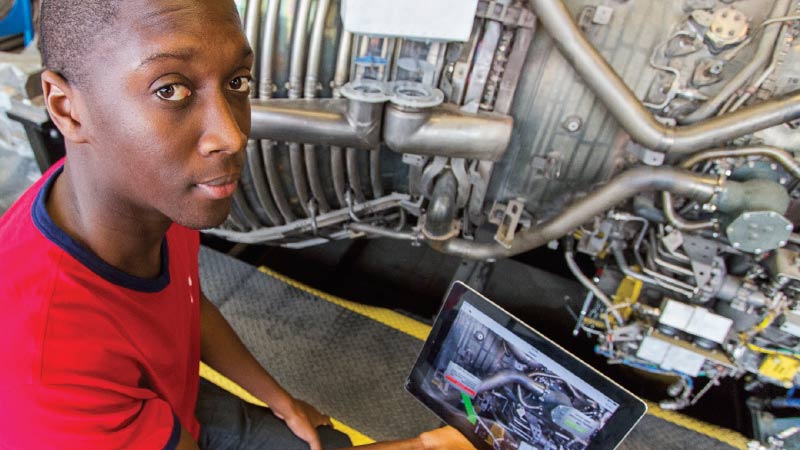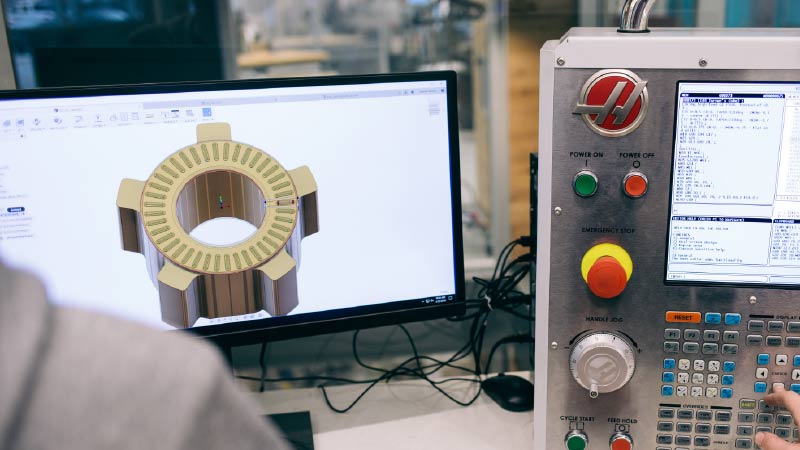A CAREER IN ENGINEERING CAN BE YOURS, THANKS TO A DEGREE IN ENGINEERING TECHNOLOGY FROM PURDUE POLYTECHNIC.
At Purdue Polytechnic, the way you learn is as important as what you learn.
- Focus on applied, theory-based learning
- Manage teams and workflow
- Improve and implement new technologies
- Collaborate with a wide range of professionals
Learn the skills and abilities that prepare you for an engineering career.
- Class projects emphasize problem-solving and teamwork
- Presentations polish communication skills
- Internships provide real-world experiences
Assist with research that has immediate impact by contributing to:
- Undergraduate research
- Company-funded senior final capstones
- Independent projects


ENGINEERING TECHNOLOGY MAJORS
ELECTRICAL ENGINEERING TECHNOLOGY
Put your knowledge of electricity and electronics into motion to improve everyday items and invent life-changing products.
Career Options
- Applications engineer
- Controls engineer
- Instrumentation engineer
- Systems engineer
INDUSTRIAL ENGINEERING TECHNOLOGY
Manage information, supplies and equipment to coordinate operations while directing people to make products or provide services.
Career Options
- Industrial engineer
- Manufacturing engineer
- Purchasing manager
- Sales engineer
ENGINEERING TECHNOLOGY
Designed with employment in mind, this degree offers a flexible curriculum to fit the needs of the workforce and the student.
Career Options
- Quality engineer
- Project engineer
- Sales engineer
- Engineer director
MECHANICAL ENGINEERING TECHNOLOGY
Manage people and production while applying principles of materials, solid and fluid mechanics and energy to create or improve products and processes.
Career Options
- Mechanical engineer
- Project engineer
- Production engineer
- Quality engineer
Is engineering technology right for you?
The following is an engineering technology synopsis based on information from ABET (www.abet.org), the computing, applied and natural science, and engineering technology accreditation agency. ABET accredits 4,005 programs at 793 colleges and universities in 32 countries.
Engineering technology is practical.
- Engineering technology programs focus on application and implementation.
- Engineering technology programs stress advanced design practices.
- Engineering technology programs typically focus on algebra, trigonometry, applied calculus and other courses that are more practical than theoretical in nature.
- Graduates with engineering technology degrees enter fields such as construction management, manufacturing, product design, testing or technical services and sales. Those who pursue further study often consider engineering, facilities management or business administration.
PE licensing for engineering technology graduates
Graduates from ABET-accredited bachelor-level engineering technology degree programs are eligible to become registered professional engineers (P.E.) in many (but not all) U.S. states and territories by a process of two examinations (the FE and PE exams) and documentation of engineering work experience.
